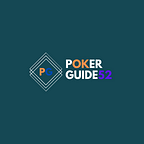The Psychology of Poker
In poker, you are at your best when you know how to make business decisions and wait patiently for your chances. The moment you do lose out with a beautiful hand, however, it is not surprising that your business attitude gives way to an attitude in which emotional factors take over.
The poison called tilt
Suppose you go all-in with Q \ Q pre-flop and your reckless neighbor takes the full pot with his mediocre 5 \ 9 hands, what happens in the upper room? This situation is frustrating. Emotion trumps ratio and you want to do everything you can to recoup your chips, which hinders rational choices.
Many will want to take revenge and buy-in with a larger sum than was initially played. The urge to win money back is nothing wrong with that. However, the problem is often that there is an irrational mindset that accompanies these feelings of revenge. Mediocre hands are overplayed, small odds are big bets and worse; raising pre-flop is becoming a habit. Bad decisions are more influential in this game than good ones. How is that possible? You can pool a capital and lose your entire bankroll with a single bad decision. Admittedly, it is often more than one decision. It is often a bad (unpacking) moment followed by a phase of rashness. That bad moment can happen to anyone, the degree of rashness is the poison you have to fight.
Realize and calm down
In the game of poker you have to make do with incomplete information. That is why it makes sense that you sometimes draw the wrong conclusions, this can happen to even the very best. The difference between the best and someone who quickly becomes tilted, however, is that the latter can no longer control his emotions in the event of setbacks and starts gambling. It has been scientifically proven that poker is not a game of chance but an adult mind sport.
Someone who has tilted puts himself at a disadvantage that the person in question is gambling among practitioners of a mind sport. The way to the abyss is thus personally initiated by the “tilter” himself. A frequently heard thought is that the tilter wonders why he made a certain decision. This is a sign that you are too impulsive and that you must first regain control and then think about the chips. But are you regaining that control?
The first step in regaining control is realization. Whether or not tilting has everything to do with awareness. Only when you recognize that your frustration threshold has been passed can worse be prevented. Inexperienced players will tilt faster, after all, you are playing a game and would prefer to win every phase. Realize that this is simply not possible. If you are sitting at the table with six people, you will never attract much more than one hand in six.
Patience is generally awarded, so choose your moments to pop. Are you making a wrong decision? Of course, something will happen to you, but the wrongest decision is to ignore what happened to you. No matter how much you intend to deal with every situation professionally, emotions play a role. Awareness and recognition of those emotions are therefore essential to get through your tilt moment and to learn from it. The latter can be done by being aware of what you went through during your last poker session, evaluating what happened and how you can avoid making wrong choices next time.
Counting to ten is often not enough. If you are playing online poker with real money, just stop for a while, go for a walk or even wait for a better day. If you are playing in a physical space, agree to stand up or keep folding for a round or four. This way you charge your battery for a series in which you can make rational choices again. The remedy for tilting is, therefore; realize and calm down.
Learn more- 10 poker tips for beginners
Also read-
